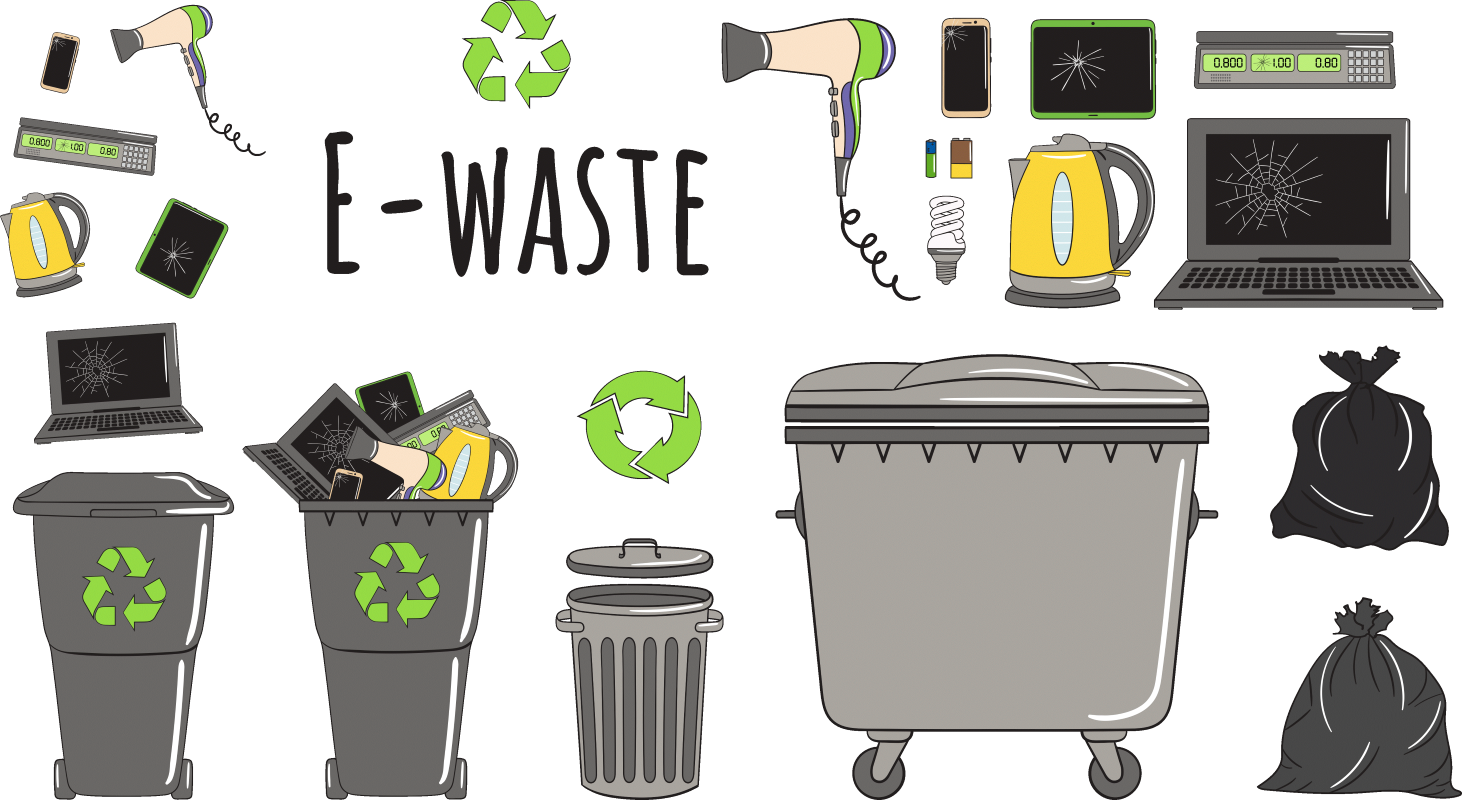ElektroG3: What's new in 2022?
One of the most important changes is that operators of online marketplaces, trading platforms as well as providers of fulfillment services are now obliged to check the marketed products for their proper registration. If they fail to do so, they will be liable for the penalties and sanctions arising from the breach of the law.
The second change in the Electrical and Electronic Equipment Act is that Germany based convenience stores must also take back old electrical equipment if their total store area is at least 800 square meters. This area now refers to the complete range of products and no longer solely to electrical appliances.
Other changes include closing a loophole that online retailers utilized to discourage customers from returning discarded equipment: Charging shipping fees. The new ElektroG stipulates thatreturns and shipments must be offered free of charge in all cases. For stationary retail, the take-back point must not be located at an unreasonable distance from the point of sale. Stores are not allowed to refer customers to the public recycling centers.
The ElektroG3 also obliges retail businesses to inform customers about the take-back possibilities. When you buy a device, the seller must inform you about the option to take it back for free and ask you how you want to return an old device. Accordingly, the rule for online commerce is that the return of large electronic items must be actively advertised and that drop-off options must be set up within a reasonable distance for small electronic devices.
The changes also affect the return modalities. Stores must take back up to three small old devices at a time and are not allowed to require a new purchase in return. “Small” appliances are those with a maximum edge length of 25 centimeters.
First-time distributors and manufacturers are also affected by the revised Electrical and Electronic Equipment Act. If you manufacture equipment designed for use in private households, for example, you must inform customers of the possibility of returning it free of charge. If your devices contain accumulators or batteries, you are also required to inform customers about the type of fuel cell and its composition.
Do you need advice or support in fulfilling your obligations under the Electrical and Electronic Equipment Act? Contact us!
To whom do the changes apply?
The renewed Electrical and Electronic Equipment Act applies to online retailers, brick-and-mortar retailers, as well as online marketplaces and fulfillment providers that make their warehouse space and shipping services available to distributors. In addition, grocery stores as well as producers and first-time distributors must comply with the new requirements.
Why is the amendment there?
Before the amendment, it was possible for many players in the market to undermine the ElektroG. To do this, the foreign dealers used marketplaces on the Internet or sold their goods via fulfillment service providers who did not attach any importance to compliance with the legal regulations. In this way, the presumed criminals were able to avoid the costs of taking back and disposing of the old equipment and also avoid the obligation to register and possibly appoint an authorized representative in Germany. his condition was not only a bother for dealers who complied with all regulations, but also a burden on the taxpayer. By making changes to the law, the federal government has put a stop to the unlawful behavior of many suppliers.
Numerous retailers in the food sector sell electrical equipment, but were previously able to refuse to take it back because they did not meet the minimum area required by law. The amendments to the ElektroG3 will now also oblige them to do their part to collect and recycle old appliances.
Deadlines and dates
For suppliers from third countries who want to trade in the EU via the Internet, there will be an obligation to appoint an authorized representative in the respective country of destination from January 2023. If you manufacture electrical equipment in the B2B sector and have registered with the stiftung ear for this purpose before January 1, 2022, you must submit a take-back and recovery concept to the stiftung ear by June 30, 2022 at the latest. If, on the other hand, you register for the first time after January 1, 2022, this concept is already part of the registration process.
What do retailers and other industry players need to consider now?
On the one hand, you must take the aforementioned obligations into account. On the other hand, the ElektroG3 specifies that you have to apply the given logo via collection points. Please note that changes and adjustments to the legal requirements are also possible in the future. It is therefore best to inform yourself regularly about any changes to the Electrical and Electronic Equipment Act.



